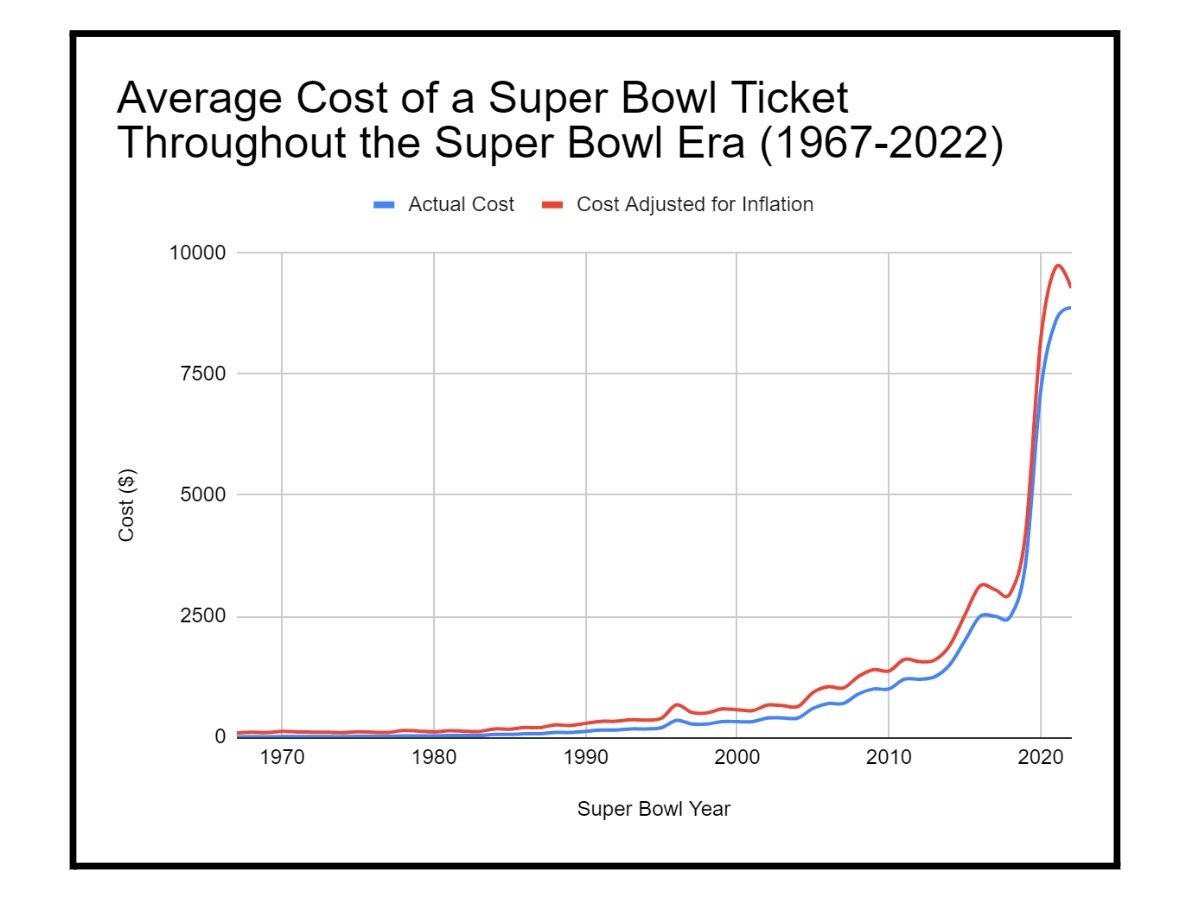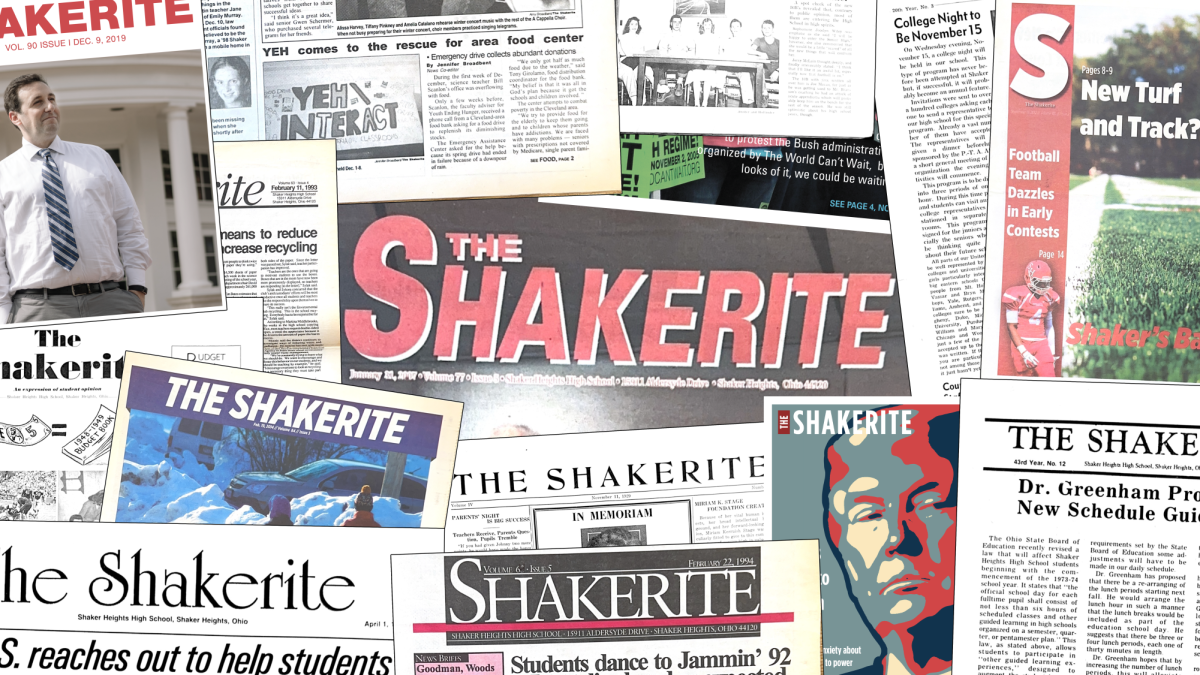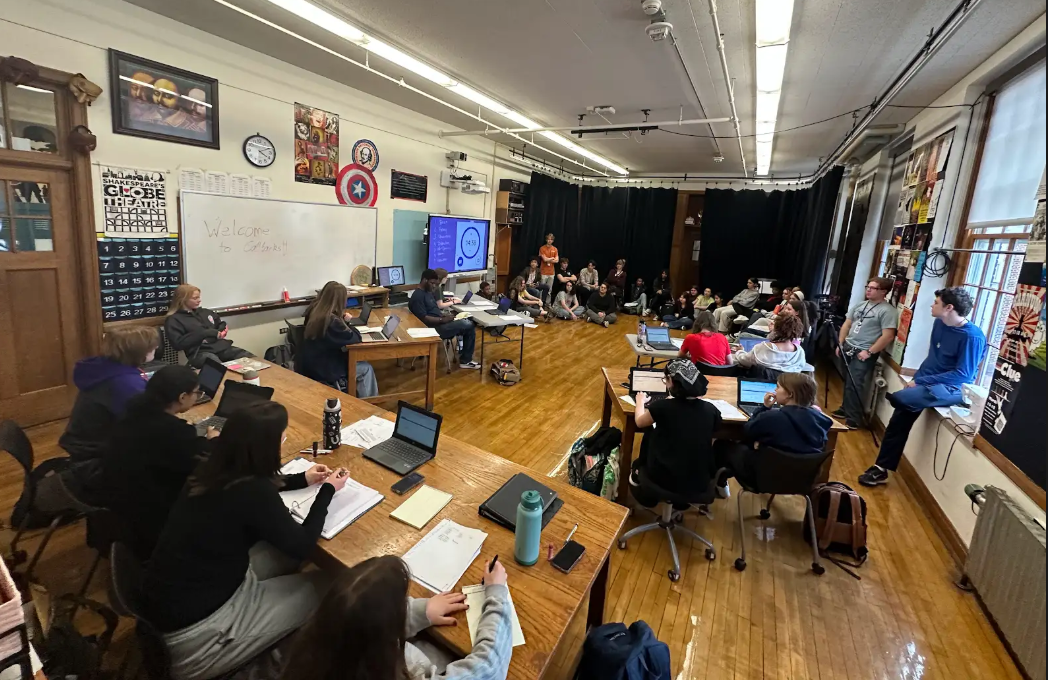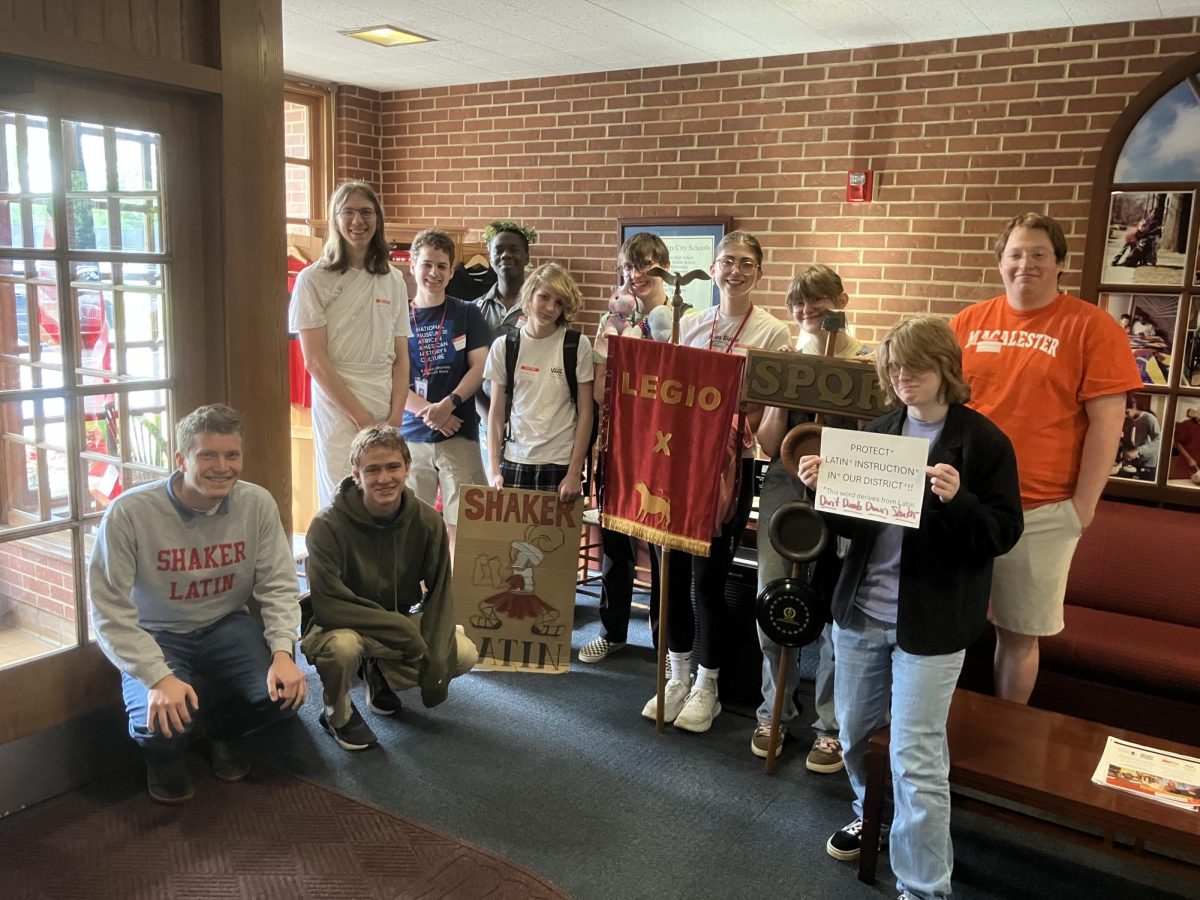Many things about football haven’t changed in 104 years since the NFL was formed.
Touchdowns are worth six points, you need 10 yards in four tries to keep the ball, and the field is 100 yards long.
Many more things, however, have changed: You can’t slam the quarterback to the ground with your body weight, you can demand a replay review of an official’s call, and the goal posts are no longer in front of the endzone.
And although you could have attended the first NFL Championship Game in Los Angeles for a mere $10 in 1967, occupying one of the 65,000 seats in Allegiant Stadium Sunday for Super Bowl LVIII will cost you a hefty $12,240 — on average.
That’s a 122,300 percent increase. In the last 10 years alone, the average Super Bowl ticket price exploded 473 percent, from $1,500 to $8,600. This increase coincides with an increase in TV viewers, which peaked in 2015. The cost of Super Bowl ad time has increased similarly. In 1967, a one-minute ad cost $150,000. This year, the cost for a 30-second spot reached $7 million.
Inflation, a term for the overall increase in prices for goods and services, can account for some of these price increases, but not much. That $10 ticket in 1967 is equivalent to a little more than $90 today. Since March 2020, when Covid arrived in the United States, most things cost more, but in the last year, only 3.4 percent more.
So inflation alone is not to blame for sky-high Super Bowl ticket costs. Economics teacher Bradley Bullard said that the reason is simpler than that. “Supply and demand has been a way bigger contributor to high ticket prices,” he said, pointing out that ticket prices for ordinary NFL games haven’t really changed. “You can still find cheap football game tickets.”
Demand has increased steadily since the 1990s, when the NFL began featuring prominent entertainers during the Super Bowl halftime show. Prices doubled twice from 1998 to 2003.
Super Bowl tickets cost much less initially. According to The Athletic, Super Bowl teams use a lottery to offer season ticket holders a chance to buy tickets that cost anywhere from $950 to $8,000 depending on where the seats are located in the stadium.
But ticket resale sites, such as SeatGeek, make it easy for people who won that lottery to sell their tickets at a profit. Eight hours before kickoff, the cheapest resale ticket at seatgeek.com is $5,492 for a seat virtually outside of the stadium. The most expensive is $37,331 for a seat 29 rows away from midfield.
“Reselling tickets has always been pretty common but has definitely gained attention since the internet and the reliability of it,” Bullard said. Before reselling became a business online, people known as ticket scalpers would buy up lots of tickets, stand outside of venues before events began and sell them for cash at inflated prices to people who missed out on the initial sales. Now, Ticketmaster lets people list their tickets for resale — and takes a cut of the profit.
Demand is high, but not everyone is willing to dish out thousands of dollars for a football game.
“The most I’d pay is around $300,” physical education teacher Don Readance said.
If you’re a Browns fan, start saving. No matter the reason, Super Bowl tickets will never be cheap.
Lanell Curlee, Gus Grey, Stephen Henderson, Chase Thompkins, Vaughn Ullom, Ta’Yon Voltz and Spencer Zbanek contributed reporting.







